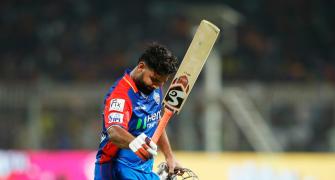"The breakthrough, which scientists say is the first new way to generate electricity in 160 years, could lead to batteries that use water instead of toxic substances," it says.
Agency reports says scientists led by Prof Daniel Kwok and Prof Larry Kostiuk at the University of Alberta made the discovery when they forced water through extremely narrow glass tubes. Water squeezed down the tubes, narrower than a human hair, generated a small electric current that ran the length of the tube.
The team then tried forcing water through a glass water filter that contained thousands of narrow channels arranged vertically. "When we took a syringe of water and squeezed it through the filter, we got enough power to light a light bulb," said professor Larry Kostiuk of the University of Alberta. "The harder you push the syringe, the more volts you get."
The method, which uses the 'electrokinetic' properties of liquids such as ordinary tap water when they are pumped through microscopic channels, is described today in the Institute of Physics publication Journal of Micromechanics and Microengineering.
According to Professors Kwok and Kostruk, no one has ever used water to produce electricity in this way. "The last time someone came up with a way of generating electricity was Michael Faraday in 1839. So this is the first new way of generating electricity in 160 years, which is why we are so excited about it."
But while Dr Kostiuk believes water batteries might someday power mobile phones and calculators, he admitted that that there were engineering challenges still to be overcome. "You'd need to be sure it wouldn't leak, and you'd need to make sure it wouldn't freeze," he said.
A more likely application would be to install the electricity-generating devices where water is already being pumped, such as city water filtration sites, he said. "It could ... rival wind and solar power," he added.







